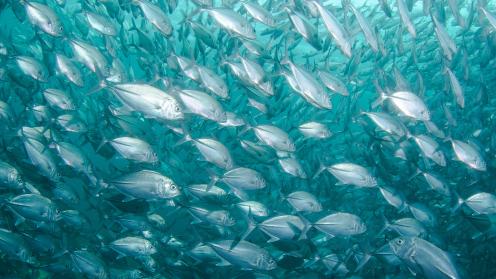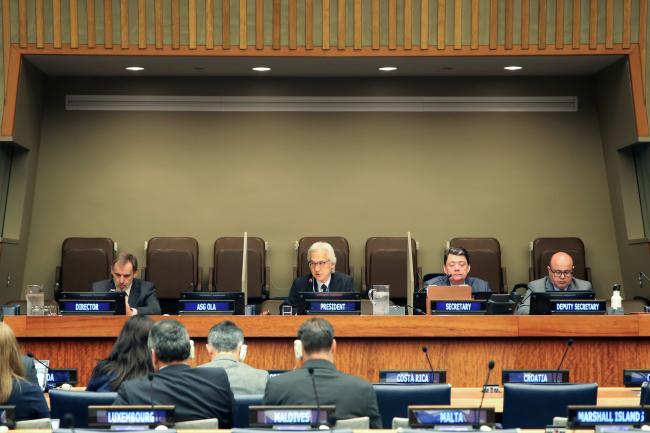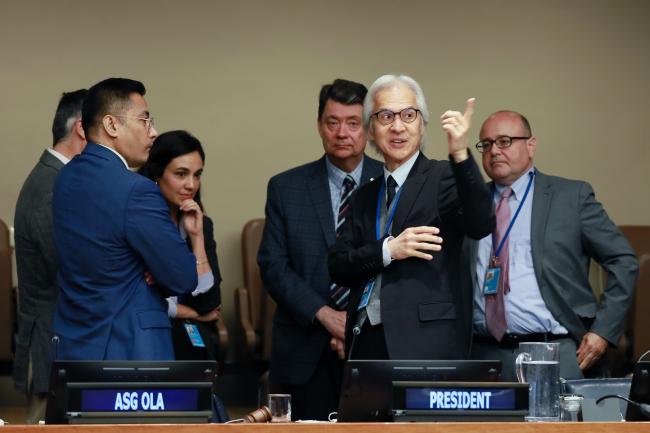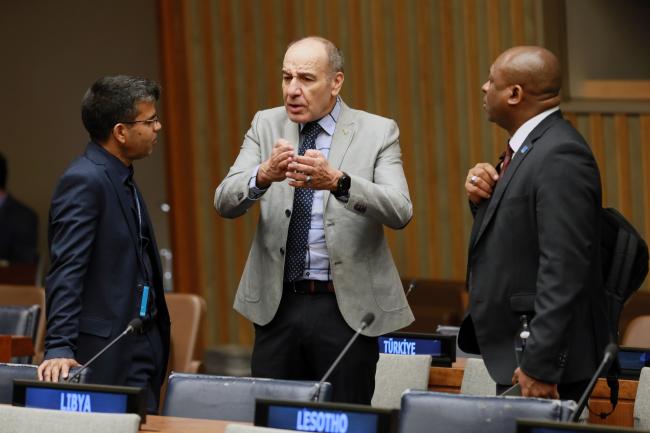Fast pace and increased efficiency are not always the main characteristics of multilateral environmental negotiations, as the complex issues at hand often require painstaking consultations sometimes extending late into the night. This was not the case on Tuesday at the Review Conference on the Agreement for the Implementation of the Provisions of the UN Convention on the Law of the Sea (UNCLOS) relating to the Conservation and Management of Straddling Fish Stocks and Highly Migratory Fish Stocks, known as the UN Fish Stocks Agreement (UNFSA).
Want to dig deeper? Read the full Earth Negotiations Bulletin daily report.
Delegates moved swiftly in their deliberations, concluding reviewing the recommendations of the 2016 Resumed Review Conference. They finalized discussions on monitoring, control, and surveillance, and compliance and enforcement, and addressed recommendations related to developing states and non-members. On monitoring and surveillance, delegates highlighted the need to bolster RFMOs’ capacities to address illegal, unreported, and unregulated (IUU) fishing, and strengthen compliance and enforcement, including via cross-listing of IUU vessels. Some highlighted the World Trade Organization (WTO) Subsidies Agreement and the Agreement on Port States Measures (PSMA) under the Food and Agriculture Organization of the UN (FAO).
On developing states and non-parties, delegates focused on: capacity-building mechanisms and programmes; access to fisheries in the high seas by developing states; promotion of small-scale fisheries; women’s participation in the fishing sector; the role of Indigenous Peoples in developing states; avoidance of disproportionate burden of conservation actions on developing states; and food security.
The Review Conference also deliberated on proposed means for further strengthening the substance and methods of implementation of the provisions of the Agreement. Several parties noted that while most recommendations from the 2016 Resumed Review Conference remain valid, some require updating based on new developments. Some proposed a new recommendation on the implications of the new agreement on an international legally binding instrument on the conservation and sustainable use of biological diversity in areas beyond national jurisdiction (BBNJ Agreement). Others highlighted the need to mainstream climate change impacts across decision making in fisheries management. Ways of strengthening recommendations on bycatch, allocation of fishing rights, IUU fishing, and fish stock prioritization were also discussed.
Taking advantage of the increased efficiency, President Morishita adjourned the session early to allow for compilation of suggestions from Parties and observers which will guide negotiations on the draft outcome document containing the recommendations of the 2023 Resumed Review Conference.
At lunchtime, a side event organized by FAO focused on scaling up cooperation and coordination among regional fishery bodies to support sustainable fisheries.
To receive free coverage of global environmental events delivered to your inbox, subscribe to the ENB Update newsletter.
All ENB photos are free to use with attribution. For the Resumed Review Conference on the UN Fish Stocks Agreement, please use: Photo by IISD/ENB | Mike Muzurakis
































